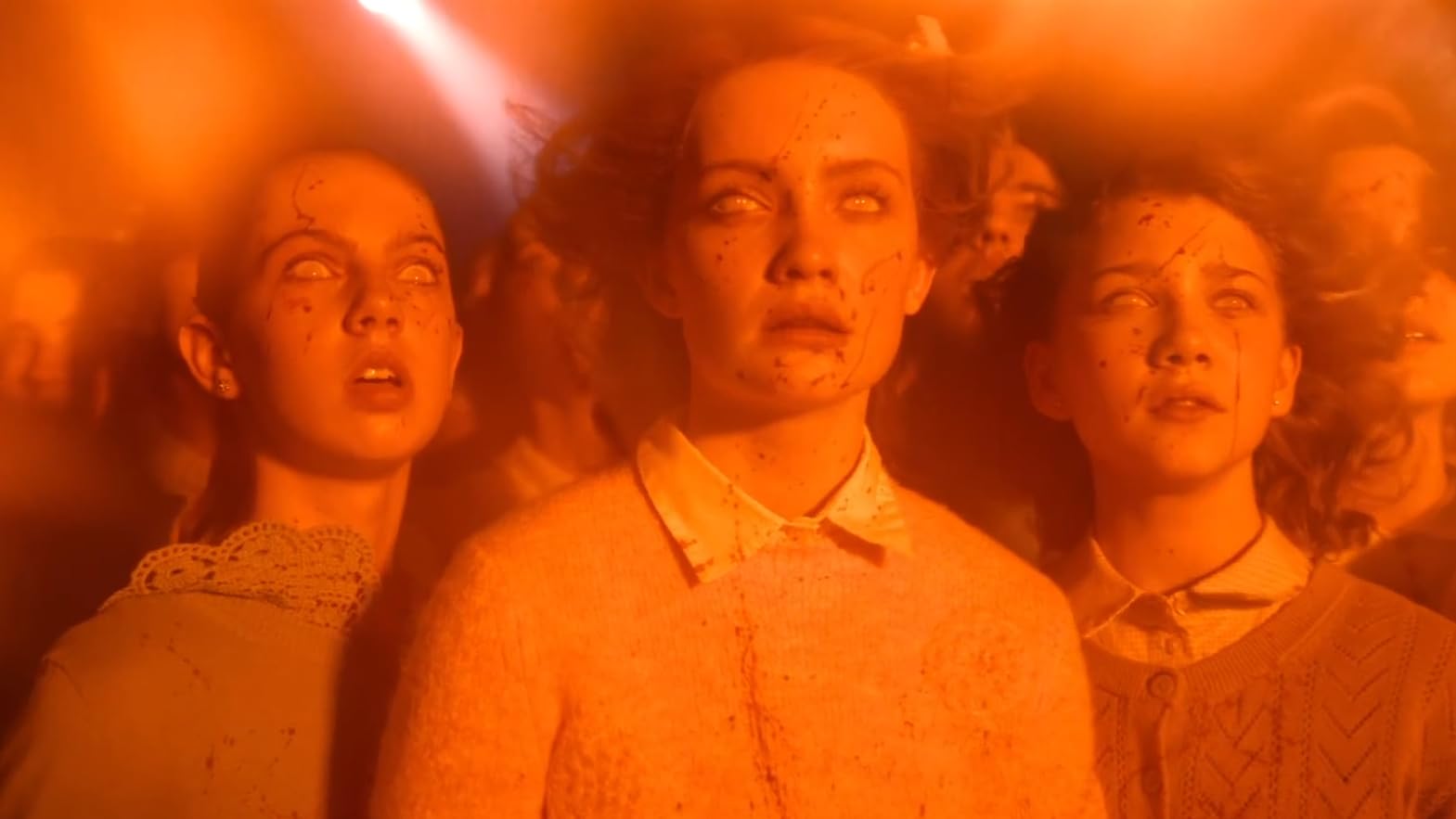After two feature films in which he talked about his native Corsica, Frenchman Thierry de Peretti steps out of his comfort zone to tell an incredible true story of a journalistic investigation that uncovered the rotten apples of power, by adapting the François Thierry case to the big screen. The director makes his debut ‘A State Scandal’, which reaches commercial theaters after passing through the Official Section of the 69th edition of the San Sebastian Film Festival and adapting the journalistic book ‘L’Infiltré’, written by Hubert Avoine, an infiltrator who worked for the Central Office for the Suppression of Illicit Drug Trafficking (OCRTIS), together with Emmanuel Fansten, journalist for Libération.

The François Thierry case tells how he, who was the head of OCRTIS in 2010, during the mandate of Nicolas Sarkozy, ended up being accused of drug trafficking in 2017. The film tells how public complaints against the former OCRTIS head began, which began in 2015, shortly after French customs seized several tons of cannabis in Paris. The information came to light through Avoine’s confession, which was leaked to OCRTIS and who provided the information to journalist Emmanuel Fansten, of Libération.
Obviously, Peretti, who signs the screenplay with Jeanne Aptekman, turns this journalistic account of several years into a drama with a certain historical perspective. First, it changes the names of the people involved to avoid legal action, as it is a fictional feature film that takes artistic licenses for the storytelling. The curious thing about the film, whose title is rather a declaration of intent, is that completely shuns the concept of political thriller to be more framed in journalistic dramato the point of being able to create a tension and atmosphere worthy of Rodrigo Sorogoyen’s ‘The Kingdom’ but lead to an aseptic story more typical of Tom McCarthy’s ‘Spotlight’.

The result is an anticlimatic drama, which plays with the elements of suspense cinema, to tell a proposal on the importance of independent media. Also interesting is the premise that Peretti also avoids giving the film the epic characteristic of journalistic stories in the cinema, since it is not the press against the foundations of the state, but the press that puts irregularities and corruption in front of the mirror. of the system itself. Furthermore, the legal and political consequences of what the film captures remain off camera, which makes it clear changes in institutions are something that escapes the hands of the professionals of the communication society.
A revelatory journalistic drama on the seams of power
The deafening thing is how the film uncovers a patronage network of corruption and drug trafficking and how the film ends up relating it also to the case of the LAG in the Spanish government, as most of the drug has the Costa del Sol as entry into the European market. The film tells the complexity of the fight against drug trafficking or terrorism and how a democratic country risks becoming what it pursues if it uses its weapons. A philosophical, moral and deontological debate on the exercise of power and on how the press is essential to bring complaints of negligence to the fore.

A cold story that shows the journalistic denunciation process and how it leads to the writing of a book. Peretti tells the unlikely friendship of the infiltrator and the journalist who published his information, played by Roschdy Zem and Pio Marmaï. The two performers show some characters forced to collaborate, starting an unexpected bond between them. Marmaï continues to show himself as one of the most mature performers of his generation, but it is Zem who takes the whole show. She is sublime in her performance, especially when it comes to proving that it would be unlikely (not impossible, but very difficult) to get exclusives if we weren’t disenchanted by the patronage networks, who choose to speak up when the ‘what about the mine’ no longer works. .
‘A State Scandal’ is a good journalistic drama, with a certain historical spirit, despite stories made five years ago. Peretti signs his best feature film to date. With two magnificent interpretations and, above all, because it leaves a residue that raises how governments have a hard time fighting corruption when they have it in their own home.
Note: 8
The best: The journalistic investigation, which unmasks the corruption of the system.
Worse: It’s really misleading, implying that the film will be a political thriller, when it ends up being a much more theoretical drama. Refrain lovers of intriguing films.
Source: E Cartelera



